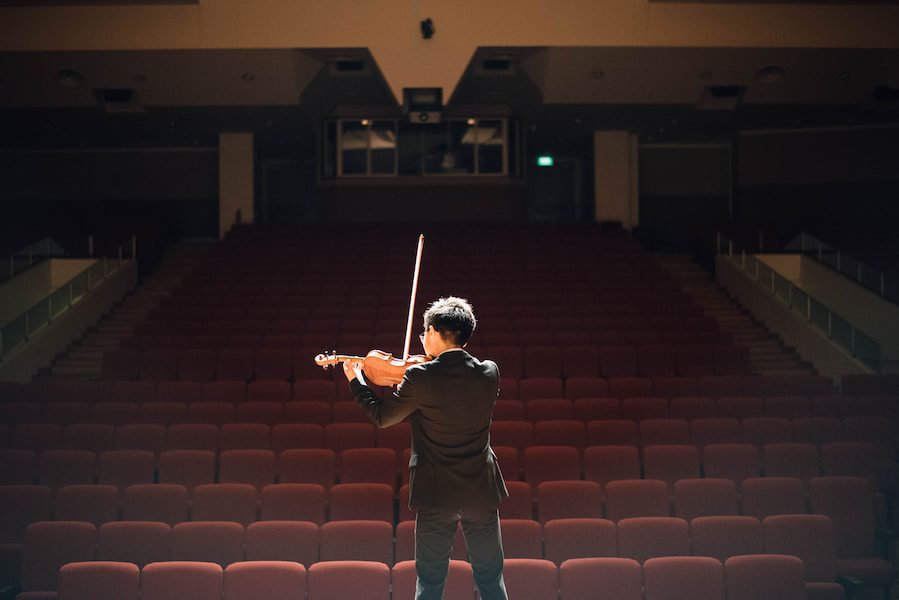When it comes to audio, sound quality is everything. Audiophiles and music lovers alike seek out the best possible sound experience, and one of the most important factors in achieving that is soundstage. But what exactly is soundstage?
Soundstage refers to the perceived location and width of sound in a recording. The sense of space and depth makes it feel like you’re listening to a live performance rather than a recording. Soundstage is created by a combination of factors, including the recording techniques used, speakers’ placement and quality, and the listening environment’s acoustics.
Understanding soundstage is crucial for anyone who wants to get the most out of their audio setup. By paying attention to soundstage, you can create a more immersive listening experience that brings music to life in a new way. Whether you’re a casual listener or a serious audiophile, learning about soundstage is essential in getting the best possible sound from your audio system.
Table of Contents
- What is Soundstage?
- Importance of Soundstage in Audio
- Factors that Affect Soundstage
- How to Enhance Soundstage

What is Soundstage?
Soundstage is a term used to describe the spatial imaging of sound in an audio system. It refers to the ability of an audio system to create a sense of depth, width, and height in the sound being reproduced. A good soundstage can make the listener feel in the room with the performers, creating a more immersive and engaging listening experience.
Several factors contribute to a good soundstage, including the placement of speakers, the recording quality, and the listening room’s acoustics. The placement of speakers is particularly important, as it can affect how sound waves interact with the room and each other. Ideally, speakers should be placed to create a balanced and natural soundstage with a clear and defined center image.
Another factor that can affect soundstage is the quality of the recording. A well-recorded piece of music will have a more natural and realistic soundstage, with instruments and vocals positioned to mimic their real-world placement. Poorly recorded music, on the other hand, may have a flat and lifeless soundstage, with instruments and vocals sounding like they are all coming from the same place.
In addition to speaker placement and recording quality, the listening room’s acoustics can also significantly impact soundstage. A room with poor acoustics, such as one with hard, reflective surfaces, can cause sound waves to bounce around and interfere, creating a muddled and indistinct soundstage. On the other hand, a well-designed listening room can help create a more natural and spacious soundstage, with a clear and defined center image.
Importance of Soundstage in Audio
Soundstage is an essential aspect of audio that enhances the listening experience. A good soundstage allows the listener to feel like they are in the same space as the performers, creating a more immersive experience.
There are several reasons why soundstage is important in audio:
- It creates a more realistic experience: A good soundstage allows the listener to feel as if they are in the same room as the performers. This creates a more realistic experience that music lovers and audiophiles can enjoy.
- It enhances the listening experience: A good soundstage can enhance the listening experience by creating a more immersive and engaging experience. This is especially true for genres like classical music, where the soundstage is an essential part of the performance.
- It can help with localization: A good soundstage can help with localization, allowing the listener to identify where each instrument or sound is coming from. This can be especially helpful for genres like jazz or orchestral music, where multiple instruments play simultaneously.
Overall, soundstage is an essential aspect of audio that can enhance the listening experience and create a more immersive and engaging experience for the listener.
Factors that Affect Soundstage
Several factors can affect the soundstage of an audio system. These factors include speaker placement, room acoustics, and recording and mixing techniques. Below are some details about each of these factors:
Speaker Placement
Speaker placement is one of the most important factors that can affect soundstage. The distance between the speakers and the listener and the angle at which the speakers are pointed can greatly impact the perceived soundstage.
For example, if the speakers are too close to each other, the soundstage may be narrow and lacking in depth. On the other hand, if the speakers are too far apart, the soundstage may be too wide and lacking in focus. Additionally, the height of the speakers can also affect the soundstage, with higher speakers often providing a more expansive and immersive soundstage.
Room Acoustics
The room’s acoustics in which an audio system is set up can also greatly impact the soundstage. Factors such as the size and shape of the room and the materials used for the walls and floors can all affect the way sound travels and is perceived by the listener.
For example, a room with hard, reflective surfaces may result in an overly bright soundstage and lack of warmth. In contrast, a room with soft, absorptive surfaces may result in an overly dark soundstage and lack of clarity.
Recording and Mixing Techniques
How the audio is recorded and mixed can also impact the soundstage. For example, using stereo miking techniques can help create a more expansive and immersive soundstage, while using mono miking techniques may result in a more narrow soundstage lacking in depth.
Additionally, reverb and delay can greatly impact the perceived soundstage, with longer and more pronounced effects often resulting in a more spacious and immersive soundstage.
How to Enhance Soundstage
Soundstage is an essential aspect of audio that can significantly affect the listening experience. With the right techniques, enhancing the soundstage and creating a more immersive audio experience is possible. Here are some tips to help:
Speaker Placement Tips
The placement of speakers is crucial when it comes to enhancing the soundstage. The following tips can help:
- Position the speakers at an equal distance from the listener
- Ensure that the speakers are at ear level
- Place the speakers away from walls and corners to minimize reflections
- Use a speaker stand to isolate the speakers from the floor
Room Acoustics Tips
The acoustics of the room can also affect soundstage. Here are some tips to improve room acoustics:
- Use acoustic treatment to minimize reflections and echoes
- Place furniture and other items in the room to break up sound waves
- Use thick curtains or blinds to absorb sound
- Use a rug to absorb sound and minimize reflections
Equipment Upgrades
Upgrading audio equipment can also help enhance soundstage. Here are some equipment upgrades to consider:
| Equipment | Upgrade |
|---|---|
| Speakers | Upgrade to speakers with a wider frequency response and better dispersion |
| Amplifier | Upgrade to an amplifier with higher power output and better signal-to-noise ratio |
| DAC | Upgrade to a high-quality DAC for better sound quality |
By following these tips, it is possible to enhance soundstage and create a more immersive audio experience.
- Review of the ALABS IRON MINI-WL: A Powerhouse Wireless Microphone - October 4, 2023
- What is a Saturator in Music Production: A Brief Explanation - May 11, 2023
- What Are Rotary DJ Mixers? An Overview - May 11, 2023
SoundStudiomagic.com is a participant in the Amazon Services LLC Associates Program, an affiliate advertising program designed to provide a means for sites to earn advertising fees by advertising and linking to Amazon.com. We also participate in other affiliate programs which compensate us for referring traffic.

